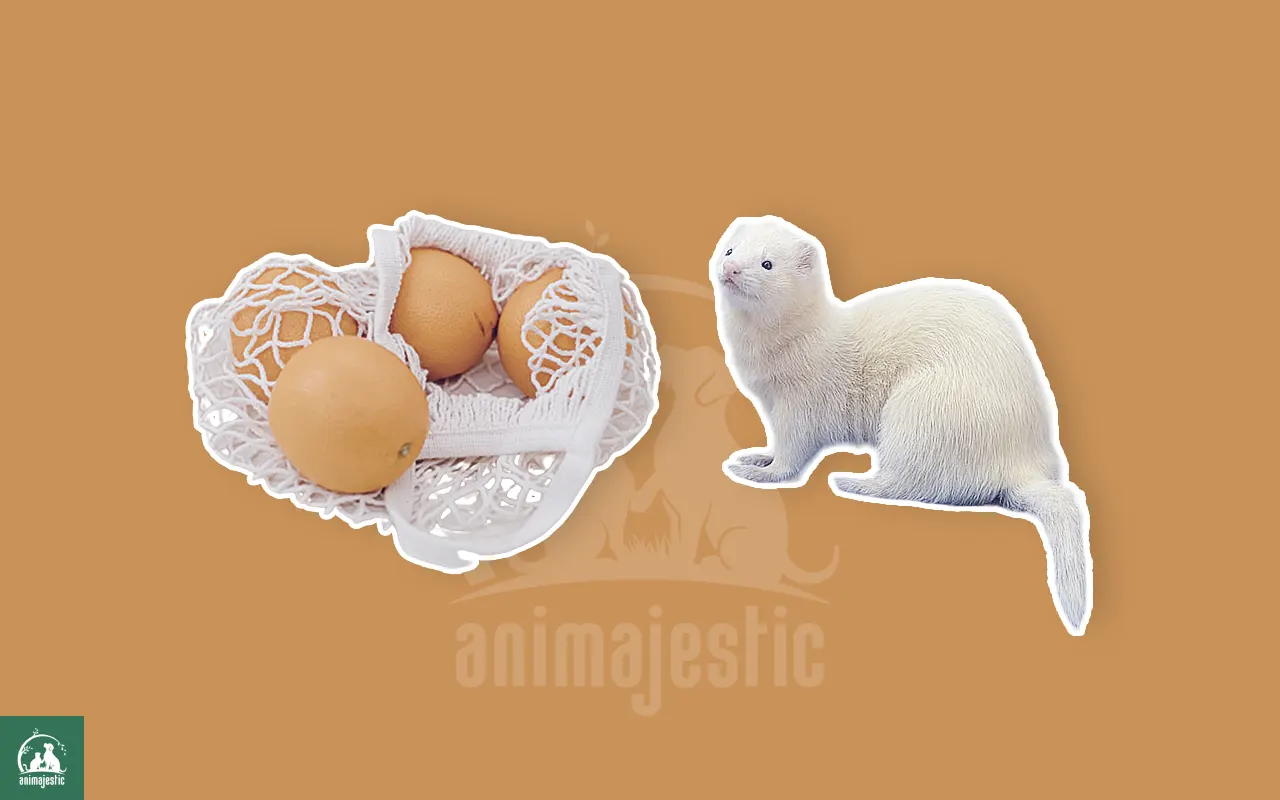When it comes to feeding pets, a question numerous ferret owners might ponder: Can ferrets eat oranges? it’s essential to know what’s safe and what’s not.
Ferrets have a unique dietary requirement that poses this inquiry. However, before jumping into conclusions, it’s crucial to broadly understand ferrets’ dietary needs and how different foods can impact their health.
However, figuring out what comprises a healthy ferret diet can be an overwhelming task, especially when debating whether or not to include fruits such as oranges.
In this guide, let’s explore the world of ferrets and oranges, examining the pros and cons to help you make the best decision for your pet’s well-being.
Understanding Ferret Nutrition
To appreciate why oranges may not be the best food choice for your ferret, it’s essential to understand their dietary requirements.
Their Carnivorous Way of Life
Ferrets are obligate carnivores, which means they rely on a diet composed almost entirely of meats. In the wild, ferrets would consume whole animals like rodents and small birds. This diet provides the essential nutrients they need, such as proteins, fats, and minimal carbohydrates.
Here’s an overview of how ferrets handle nutrients from their diet:
- Protein: As the primary nutrient source for ferrets, high-quality animal protein provides them with essential amino acids for proper growth, tissue repair, and overall health.
- Fats: Fats play an integral role in a ferret’s overall nutritional health. Animal fats are the primary source of their energy and are essential for maintaining healthy skin and fur.
- Carbohydrates and Fibers: As obligate carnivores, ferrets don’t have the enzymes necessary to process carbohydrates and fiber efficiently. A high-carbohydrate diet can lead to health issues, as their bodies are not equipped to handle these nutrients.
The Citrus Conundrum: The Impact of Oranges on Ferrets
Given their natural inclination towards meat-based diets, let’s explore the potential impact of feeding oranges to our ferrets.
Nutritional Incompatibility
Oranges are packed full of vitamins and minerals, such as vitamin C and potassium. However, their sugar, acidity, and fiber content are far from suitable for ferrets.
Due to their inability to break down complex carbohydrates, here’s why the sweetness of oranges presents problems:
- High sugar levels can disrupt a ferret’s insulin-regulating system, leading to insulinoma and diabetes.
- The fiber content can lead to gastrointestinal issues such as bloating, gas, and diarrhea.
Acidic Complications
Oranges are acidic fruits, meaning they contain significant amounts of citric acid. While their tangy nature might be pleasant for human taste buds, ferrets’ digestive systems can suffer from the adverse effects of this increased acidity:
- An imbalance of a ferret’s stomach pH can lead to digestive distress, discomfort, and potential long-term health issues.
Long-term Health Concerns
Although occasionally indulging in fruits might not cause immediate harm to your ferret, long-term exposure to these sugary and acidic foods can predispose your pet to severe health complications:
- Chronic digestive problems
- Pancreatic cancer (Insulinoma)
- Diabetes
- Dental issues due to sugary residues on their teeth
The Final Verdict: Can Ferrets Eat Oranges?
The quick answer is no, ferrets should not eat oranges – or any other fruits and vegetables for that matter.
Here’s why:
After analyzing the potential impacts of feeding oranges to our ferrets, the conclusion is clear: it’s best to avoid feeding them oranges or any other fruits and vegetables.
Instead, focus on providing a diet rich in animal proteins, healthy fats, and minimal carbohydrates. This approach will support your ferret’s long-term health and keep them lively, inquisitive, and engaged companions.
If in Doubt, Consult a Veterinarian
As ferret owners, it’s our responsibility to cater to our pet’s unique dietary needs.
If you’re uncertain about your ferret’s diet or concerned about their health, it’s always wise to consult with a professional nutritionist. They’ll provide the most accurate, up-to-date, and personalized advice to ensure your ferret lives a happy, healthy life.
By steering clear of oranges and other unsuitable fruits, and by following a diet catered towards their natural instincts as carnivores, you’ll be providing your beloved ferret with the essential building blocks for a fulfilling, healthy, and active life.
